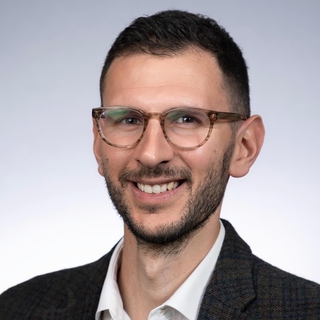We are delighted to offer Biblical Hebrew classes at Yale, an institution whose very seal contains the ancient Biblical Hebrew phrase אורים ותמים, translated into Latin as Lux et Veritas or “light and truth,” reflecting Yale’s deep roots in classical education. These languages were once mandatory for all Yale students. Today, Biblical Hebrew is offered at both the undergraduate and graduate levels.

The Queen of Sheba with King Solomon and Tribute Bearers, at the Yale Art Gallery
Undergraduate students begin the Biblical Hebrew sequence through Yale College, offered by the Hebrew Program, and may continue their studies at the Divinity School. The Level 1 class at the College focuses on developing language skills that enable students to begin reading biblical texts early in the course, grounded in a strong comprehension of the material. The class includes cultural and artistic components that enrich the learning experience, such as a curated visit to the Yale Art Gallery’s biblical exhibition, an on-campus viewing of a genuine biblical scroll, and a library visit to explore materials for Biblical Hebrew studies.

Book of Psalms, Job, and Proverbs (1467, Italy), housed at the Beinecke
At the Divinity School, the Level 1 class, developed primarily for graduate students, focuses more closely on the nuances of Biblical Hebrew grammar while also emphasizing the reading of biblical texts early in the course. Students enrolled in the Divinity School take the Level 1 course offered at the Divinity School, while FAS graduate students have the option of enrolling in either of the elementary courses (in the College or at the Divinity School).
Level 2 and 3 classes are offered to both undergraduate and graduate students at the Divinity School. These courses build on students’ expanding vocabulary and grammatical skills with longer and more complex readings that are drawn from the Hebrew Bible, such as Genesis 22, Jonah, and Ruth. Level 4 courses (and beyond) are also offered to undergraduate and graduate students at the Divinity School, including courses that explore Biblical Hebrew poetry, the Hebrew of the Dead Sea Scrolls, as well as the historical grammar of Biblical Hebrew.
Contact Information
For questions, please contact Dina Roginsky at the Hebrew Program and Eric Reymond at the Divinity School.
“I came to Yale after having completed two years of biblical Hebrew as an undergraduate. I was pleased to learn that I could continue with formal study in a sequence of advanced courses, after which I began taking text seminars in Hebrew. This sustained in-depth study on ancient Hebrew texts was formative for my research trajectory, and I continue to use the skills I honed in those courses in my research.”

James Nati, MAR ‘13, PhD ‘19, Associate Professor of Hebrew Bible & Early Judaism at Santa Clara University’s Jesuit School of Theology
“Words cannot describe how life-changing my time studying Biblical Hebrew at Yale has been. Dr. Reymond and the Jewish Studies faculty welcome all students with open arms, joyful humor, and incredible patience regardless of prior linguistic experience. Through the support of this wonderful community, I went from knowing absolutely no Hebrew to being head over heels in love with its syntax and poetry. The warmth of this program can never be overstated, and I hope that all who wish to are able to experience its generosity!”

Natalie Hughes, Yale Divinity School, Class of 2025, Tournament Operations Intern at the Northern Texas PGA